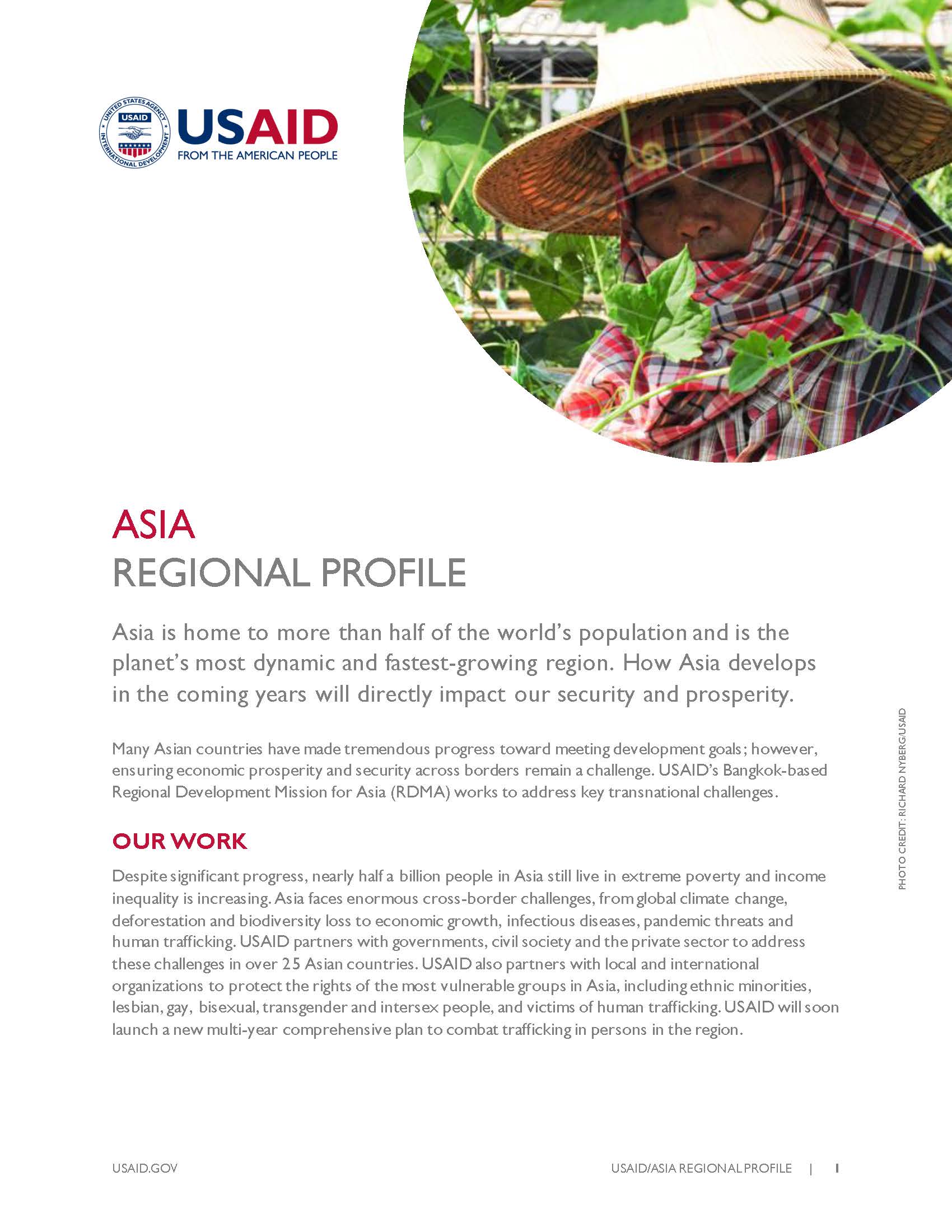Asia is home to more than half of the world’s population and is the planet’s most dynamic and fastest-growing region. How Asia develops in the coming years will directly impact our security and prosperity.
Many Asian countries have made tremendous progress toward meeting development goals; however, ensuring economic prosperity and security across borders remain a challenge. USAID’s Bangkok-based Regional Development Mission for Asia (RDMA) works to address key transnational challenges.
OUR WORK
Despite significant progress, nearly half a billion people in Asia still live in extreme poverty and income inequality is increasing. Asia faces enormous cross-border challenges, from global climate change, deforestation and biodiversity loss to economic growth, infectious diseases, pandemic threats and human trafficking. USAID partners with governments, civil society and the private sector to address these challenges in over 25 Asian countries. USAID also partners with local and international organizations to protect the rights of the most vulnerable groups in Asia, including ethnic minorities, lesbian, gay, bisexual, transgender and intersex people, and victims of human trafficking. USAID will soon launch a new multi-year comprehensive plan to combat trafficking in persons in the region.
GLOBAL CLIMATE CHANGE AND ENVIRONMENT
USAID helps mitigate the effects of climate change through low-emission development, adoption of clean energy policies and the sustainable management of forests and wetlands. Due in part to USAID funding, more than 2,300 officials in 14 countries received training on combatting illegal trade and trafficking of endangered species; this helped lead to 1,300 arrests and the seizure of more than $150 million in criminal assets. In support of sustainable fisheries management, USAID is working with partners to develop a regional electronic traceability system to ensure that fish and other marine resources are legally caught and properly labeled.
ECONOMIC GROWTH
USAID works with the private sector to promote inclusive economic growth. In the Lower Mekong region, we are collaborating with Cisco, Google, Hewlett-Packard, Intel and Microsoft to train university and vocational college instructors to empower students with essential skills. USAID also facilitates the transfer of low-cost agricultural technology between South and Southeast Asia to help boost production and incomes.
GLOBAL HEALTH
Working with host country health providers, USAID-supported partnerships are addressing the region’s most pressing health concerns, including HIV and AIDS, malaria, pandemic influenza, tuberculosis and nutrition deficiencies. Through the Southeast Asia One Health University Network with over 60 universities, USAID is building the next generation of public health leaders to curb pandemic threats.








Comment
Make a general inquiry or suggest an improvement.